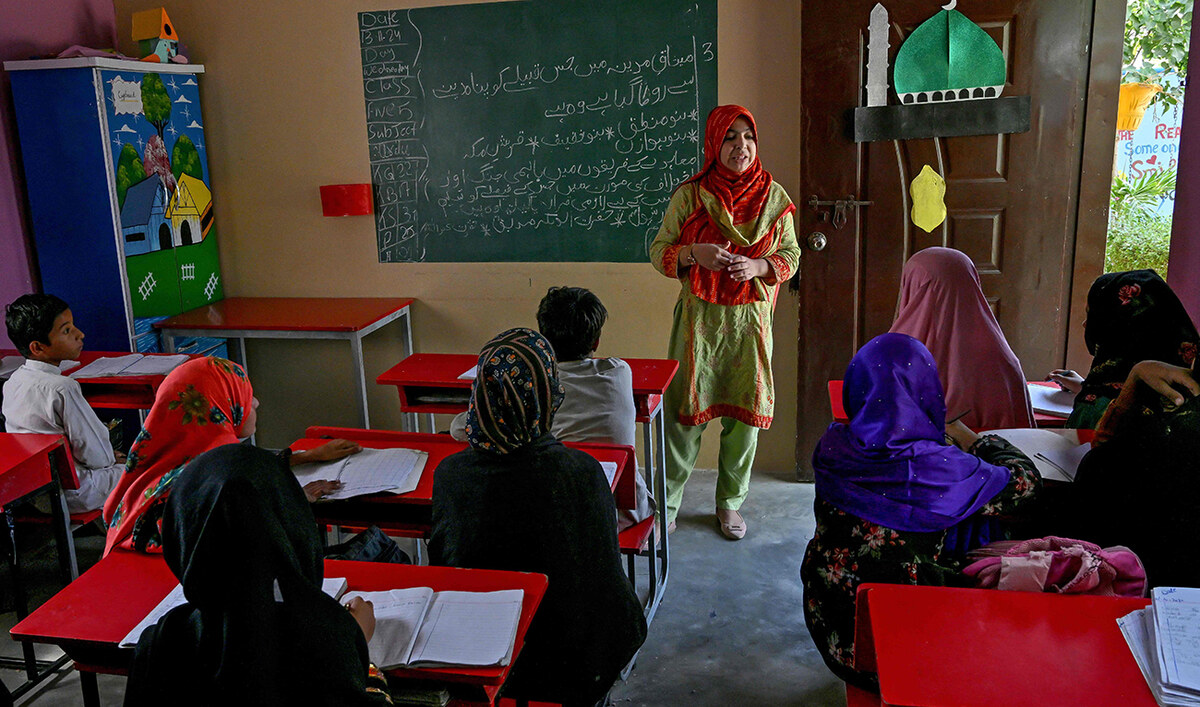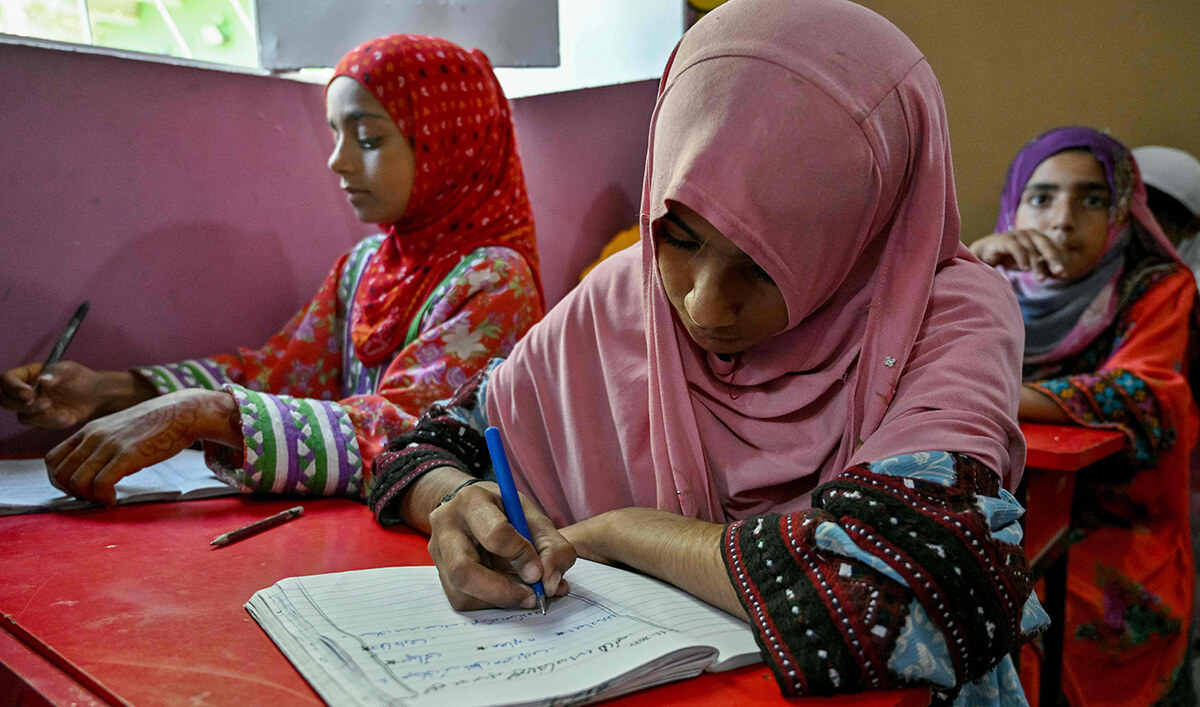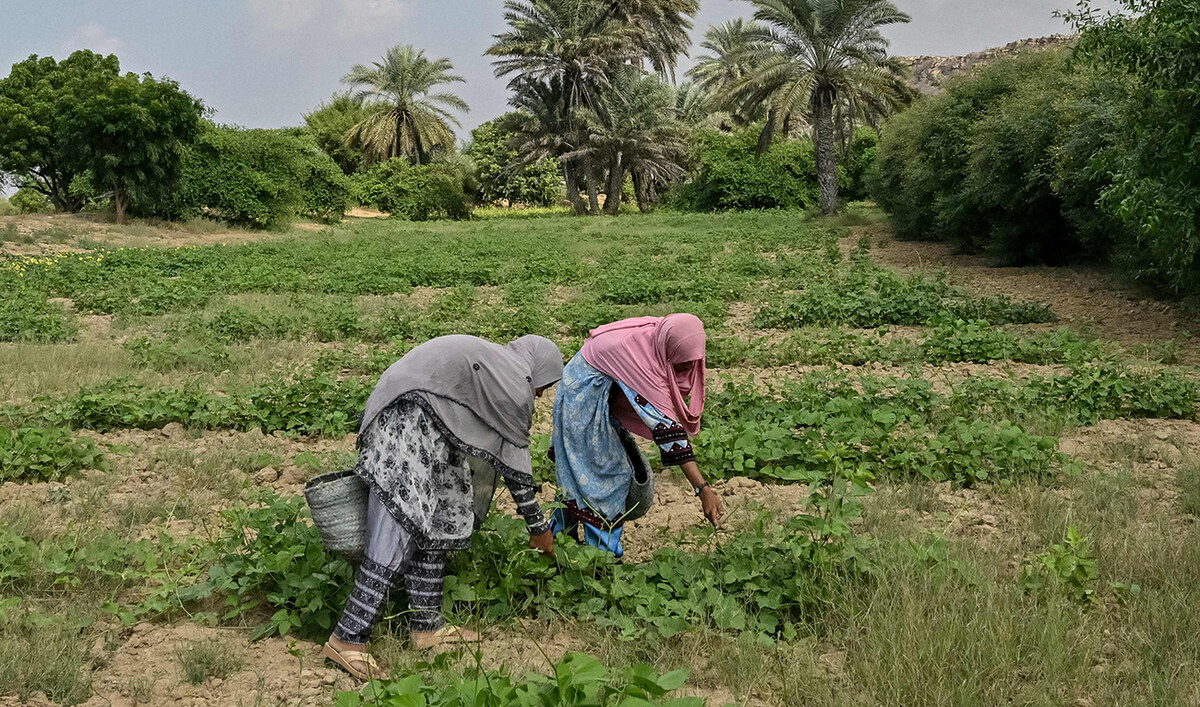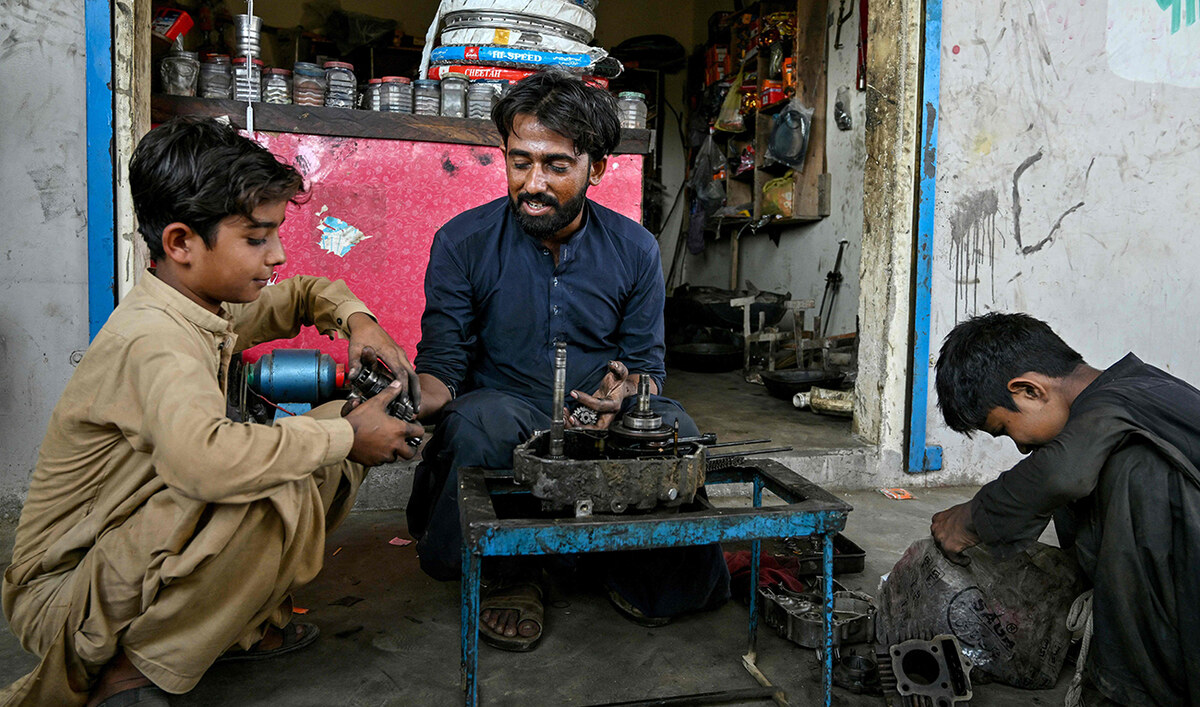ABDULLAH GOTH: Aneesa Haroon drops off her tattered school bag at her rural home in Pakistan and hurriedly grabs lunch before joining her father in the fields to pick vegetables.
The 11-year-old’s entry into school at the age of seven was a negotiation between teachers and her parents in her farming village on the outskirts of Karachi.
“Initially, many parents were not in favor of educating their children,” headteacher Rukhsar Amna told AFP.
“Some children were working in the fields, and their income was considered more valuable than education.”
Pakistan is facing a severe education crisis, with more than 26 million children out of school, the majority in rural areas, according to official government figures — one of the highest rates in the world.
This weekend, Pakistan will host a two-day international summit to advocate for girls’ education in Muslim countries, attended by Nobel Peace laureate and education activist Malala Yousafzai.
In Pakistan, poverty is the biggest factor keeping children out of classrooms, but the problem is worsened by inadequate infrastructure and underqualified teachers, cultural barriers and the impacts of climate change-fueled extreme weather.
In the village of Abdullah Goth on the outskirts of Karachi, the non-profit Roshan Pakistan Foundation school is the first in decades to cater to the population of over 2,500 people.
“There was no school here for generations. This is the first time parents, the community and children have realized the importance of a school,” said Humaira Bachal, a 36-year-old education advocate from the public and privately funded foundation.

This photo taken on November 13, 2024 shows Rukhsar Amna, a 27-year-old school principal, interacting with children at a community school in Abdullah Goth village on the outskirts of Karachi. (AFP)
Still, the presence of a school was just the first hurdle, she added.
Families only agreed to send their children in exchange for food rations, to compensate for the loss of household income that the children contributed.
In Abdullah Goth, most children attend school in the morning, leaving them free to work in the afternoon.
“Their regular support is essential for us,” said Aneesa’s father, Haroon Baloch, as he watched his daughter and niece pick okra to sell at the market.
“People in our village keep goats, and the children help graze them while we are at work. After finishing grazing, they also assist us with labor tasks.”

This photo taken on November 13, 2024 shows Aneesa Haroon, an 11-year-old schoolgirl, attending a class inside a community school in Abdullah Goth village on the outskirts of Karachi. (AFP)
Education in Pakistan is also increasingly impacted by climate change.
Frequent school closures are announced due to heavy smog, heatwaves and floods, and government schools are rarely equipped with heating or fans.
In the restive provinces of Balochistan and Khyber Pakhtunkhwa, education faces significant setbacks due to ongoing militancy, while classes are routinely disrupted in the capital Islamabad due to political chaos.
Although the percentage of out-of-school children aged between five and 16 dropped from 44 percent in 2016 to 36 percent in 2023, according to census data, the absolute number rises each year as the population grows.
Girls all across the country are less likely to go to school, but in the poorest province of Balochistan, half of girls are out of school, according to the Pak Alliance for Maths and Science, which analyzed government data.
Cash-strapped Pakistan’s Prime Minister Shehbaz Sharif declared an “education emergency” last year, and said he would increase the education budget from 1.7 percent of GDP to 4 percent over the next five years.
Public schools funded by the government offer free education but struggle with limited resources and overcrowding, creating a huge market for private schools whose costs can start from a few dollars a month.
In a parallel system, thousands of madrassas provide Islamic education to children from the poorest families, as well as free meals and housing, but often fail to prepare students for the modern world.

This photo taken on November 13, 2024 shows Aneesa Haroon (L) and Zulekha Mahmood working at a field after finishing school in Abdullah Goth village on the outskirts of Karachi. (AFP)
“In a way, we are experiencing an education apartheid,” said Adil Najam, an international relations professor at Boston University who has researched Pakistan’s education system.
“We have at least 10 different systems, and you can buy whatever quality of education you want, from absolutely abysmal to absolutely world-class.
“The private non-profit schools can prime the pump by putting (out) a good idea, but we are a country of a quarter billion, so these schools can’t change the system.”
Even young student Aneesa, who has set her mind on becoming a doctor after health professionals visited her school, recognizes the divide with city kids.
“They don’t work in field labor like we do.”

This photo taken on November 13, 2024 shows Kamran Imran (L), a 10-year-old schoolboy (L), working at a motorcycle workshop after finishing school in Abdullah Goth village on the outskirts of Karachi. (AFP)
In the small market of Abdullah Goth, dozens of children can be seen ducking in and out of street-side cafes serving truck drivers or stacking fruit in market stalls.
Ten-year-old Kamran Imran supports his father in raising his three younger siblings by working at a motorcycle workshop in the afternoons, earning 250 rupees ($0.90) a day.
Muhammad Hanif, the 24-year-old owner of the workshop, does not support the idea of education and has not sent his own children to school.
“What’s the point of studying if after 10 to 12 years, we still end up struggling for basic needs, wasting time and finding no way out?” he told AFP.
Najam, the professor, said that low-quality education was contributing to the rise in out-of-school children.
Parents, realizing their children cannot compete for jobs with those who attended better schools, instead prefer to teach them labor skills.
“As big a crisis as children being out of school is the quality of the education in schools,” said Najam.




















